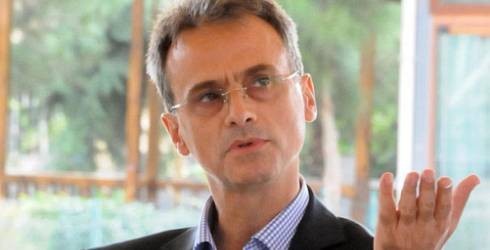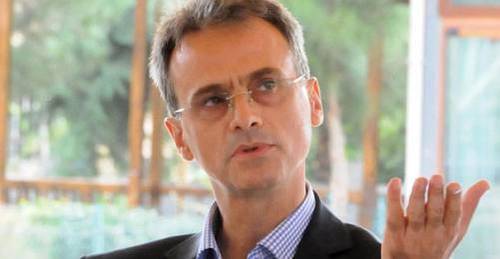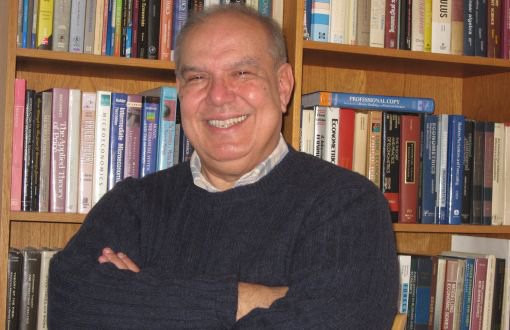
The newly appointed police chief in the southeastern province of Diyarbakır delivered some rare and striking comments with respect to the Kurdish issue. Critics expressed hope that Police Chief Recep Güven's remarks will help bring about some change but remained cautions nonetheless, as he is still a representative of the Turkish state.
"It is not the country but humanity that comes first. I had said that you are not a human being unless you weep for the terrorist up on the mountain either. My heart sinks for all terrorists. If a child goes up on the mountain [to take up arms] then we all have responsibility in that," Police Chief Recep Güven said in a press meeting, according to the daily Taraf.
Güven has recently been transferred from the Siirt Police Headquarters to the Diyarbakır Police Headquarters.
"I served in Diyarbakır between 1991 and 1996. It was a difficult period. I tried to render my services in Diyarbakır at a time which we [all regret.] I had established a theater in the police academy. I used to write bits and pieces of poetry. I could neither visit the theater nor write my poetry nor read Ahmet Arif in Diyarbakır," he said.
"We were aware that every evacuated village, in fact, represented a threat to our future. We were also aware that people who went incognito would not be subject to any system. I would rather not criticize the past, but this is what lies underneath the problem we are having today," Güven added.
Recep Güven also said he knew all too well that security measures would not help rectify the Kurdish problem, as he had served in the police intelligence for 20 years.
"We were both the victims and the prisoners of the system in that time, and we were doomed to it," he said.
"I had said you are not a human being unless you cry for the terrorist who dies on the mountain during [a speech at Istanbul's] Bahçeşehir University in 2005. However, you are not a state unless you can intern a monstrous terrorist who massacres children either," Güven said.
"If a child goes up on the mountains, then we all have responsibility in this. How could I avoid self-criticism? [We are talking about] a child who could not cling onto a social life due to the use of excessive force in one of my checkpoints, or the ill-treatment of an officer of mine at a police station. If I am one of the reasons why he ran away, if there is a problem in this society, then how are we to solve it unless we lay all this bare?" he said.
"Alright, we have suffered, but we cannot continue this business through more suffering. The state exists to serve [the people.] It is not the country but humanity that comes first. The greatest problem is to reach out to the mothers and the children," Güven added.
Forging a common language
It is significant that a police chief spoke about the forced evacuation of countless villages in southeastern Turkey, said Mehmet Emin Aktar, the head of the Diyarbakır Bar Association.
At least 1 million Kurds were forced out of their homes during the evacuations in the countryside in the 1990s.
"It is extremely important that this person said his conscience went out for everyone who lost their lives," Aktar told bianet.
"People's deaths should not be distinguished from each other. It is quite human to feel sorrow about [someone's] death through a common attitude and reflex. The rhetoric of hatred has begun to accrue greater strength in conjunction with the escalation of the conflict, and people have started rejoicing in others' deaths. It is exceedingly dangerous for society to grow apart over people's deaths. The basis of co-existence also begins to wither away when we have no more sorrows or joys in common," Aktar said.
Mehmet Emin Aktar also expressed his hope that Güven's remarks may pave the way to form a common language by those who wish to co-exist.
"He says the state is also responsible for people going up to the mountains [to take up arms.] In that case, he needs to work toward eliminating those circumstances which cause people to go up to the mountains," he added.
"I paid a visit to Güven after he took up office. He also uttered similar remarks during our conversation. He spoke about assuming a common stance against people's deaths and of being partners in sorrow. As a legal expert, I look at the matter through the perspective of human rights and freedoms, and as a police chief, he sees matters though the lens of security. I thought we could forge a common language, however," Aktar said.
The government's new Kurdish policy?
Cumhur Kılıççıoğlu, the owner of Siirt Mücadele newspaper, referred to Police Chief Güven as a person "with a sentimental approach."
"He was in office to fight against terrorism, but he was also deeply interested in children. He strove a lot to prevent children from taking it up to the mountains [to fight against the military.] I can say he did not strike an unfavorable image. In the end, however, he was a person tasked with implementing the state's policies," Kılıççoğlu said.
"The governor [of the southeastern province of] Siirt also uttered similar remarks last week. The governor said he was going to hire an instructor to learn Kurdish. This could be the government's new Kurdish policy. I hope, however, these [officials] do not just pay lip service and that their words translate into action. Peace is the common demand of all our people," he said.
"Interior Minister İdris Naim Şahin says their struggle will continue until the last terrorist falls, but a police chief will weep for the people he will kill. Şahin also needs to grow a bit more sentimental and not make his own personnel cry," he added. (EKN)







.jpg)


